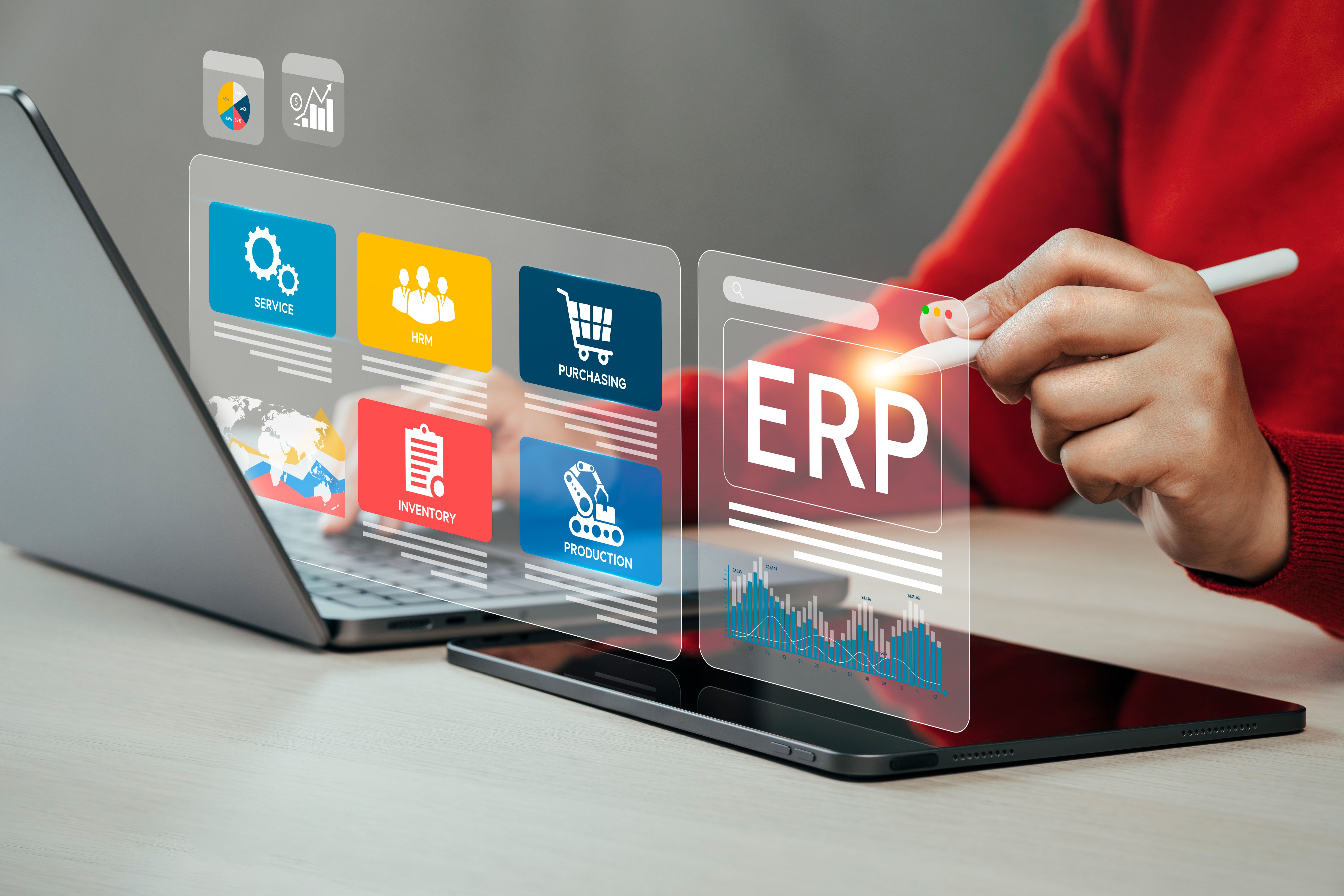AI-Driven Innovations Shaping the Future of ERP
DL
Introduction to AI and ERP
Enterprise Resource Planning (ERP) systems have long been the backbone of business operations, streamlining processes and providing critical insights across various departments. With the advent of Artificial Intelligence (AI), these systems have been revolutionized, offering unprecedented efficiency and accuracy. AI-driven innovations are transforming how businesses operate, making ERP systems more intelligent and adaptable.

Enhanced Data Processing
One of the most significant impacts of AI on ERP systems is the enhancement of data processing capabilities. AI algorithms can quickly analyze vast amounts of data, identifying patterns and trends that would be impossible for human analysts to detect in real-time. This enables businesses to make more informed decisions, improving their strategic planning and operational efficiency.
AI-driven ERP systems can automatically process data from various sources, ensuring that information is up-to-date and accurate. This automation reduces the burden on IT departments and minimizes the risk of human error. As a result, companies can rely on their ERP systems to provide the most relevant and timely insights.
Predictive Analytics
Predictive analytics is another area where AI is making a significant impact on ERP systems. By utilizing machine learning algorithms, these systems can forecast future trends based on historical data. This allows businesses to anticipate market changes, optimize inventory levels, and streamline supply chain operations.

For example, AI can help companies predict demand for products with greater accuracy, reducing the likelihood of overstocking or stockouts. This not only enhances customer satisfaction but also improves overall profitability by minimizing waste and optimizing resource allocation.
Automation and Workflow Optimization
AI-driven ERP systems are also revolutionizing automation and workflow optimization. By leveraging AI, businesses can automate repetitive tasks, freeing up employees to focus on more strategic activities. This not only boosts productivity but also enhances job satisfaction as employees can engage in more meaningful work.
- Automated invoice processing reduces time spent on manual entry.
- AI-powered chatbots handle customer queries, improving response times.
- Intelligent scheduling optimizes workforce management.

Improved Decision-Making
With AI integration, ERP systems provide enhanced decision-making capabilities by delivering actionable insights. AI tools can evaluate multiple scenarios and suggest optimal courses of action based on predictive models. This empowers business leaders to make data-driven decisions with confidence, reducing risks and capitalizing on opportunities faster.
Moreover, AI can assist in identifying anomalies or potential issues before they escalate, allowing businesses to address them proactively. This level of insight ensures that companies remain agile and responsive in a rapidly changing market environment.
The Future of AI-Driven ERP Systems
As AI technology continues to evolve, its integration with ERP systems will become even more sophisticated. Future innovations may include advanced natural language processing capabilities, enabling more intuitive interactions with ERP data. Additionally, the development of AI-powered digital twins could allow businesses to simulate various operational scenarios, further enhancing decision-making processes.

The continuous improvement of AI-driven ERP systems promises to deliver even greater efficiencies, cost savings, and competitive advantages for businesses willing to embrace these technologies. As organizations increasingly rely on data-driven strategies, AI's role in shaping the future of ERP cannot be overstated.
Conclusion
AI-driven innovations are significantly reshaping the landscape of ERP systems, offering enhanced data processing, predictive analytics, automation, improved decision-making, and a glimpse into a promising future. Businesses that harness the power of AI within their ERP frameworks are positioned to achieve greater efficiency and success in an increasingly competitive market.
